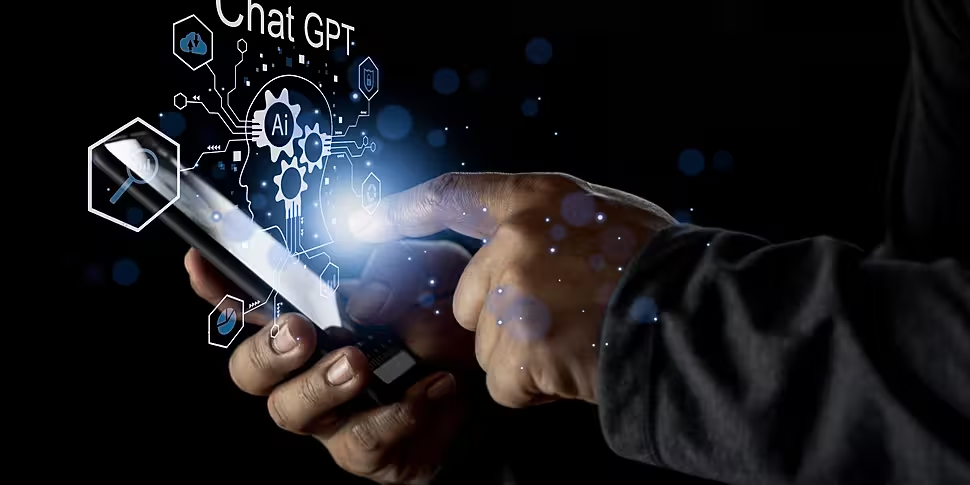Fake images, videos and text are going to be the “most pressing issues for this decade,” according to an Artificial Intelligence expert.
‘The Godfather of A.I.’, Geoffrey Hinton, has left Google after 50 years of developing technology for chatbots like ChatGPT.
Mr Hinton said he now regrets his life’s work.
Speaking to The Pat Kenny Show, AI expert and senior solicitor with William Fry's Technology Group, Barry Scannell said the explosion in deep fakes has accompanied the explosion of AI.
“If you consider the likes of Photoshop, deep fakes have been around for a long time because there's been nothing stopping people from taking somebody's face and just pasting it onto an image of someone else.
“Deep fakes are the next big thing and it's already here – the technology is already happening.”
‘Political implications’
Mr Scannell said there is “nothing particularly damaging” about some of the viral deep fakes.
“That picture of the Pope in a puffer jacket, this big, long, white shiny thing … I just assumed that they might have a flair for the theatrical maybe in The Vatican,” he said.
“I wouldn't necessarily think ‘Oh, that must be a deep fake’. It turns out it was, and it was a particularly good one.”
Mr Scannell said the danger lies “in the middle ground, where something potentially is within context, but seems potentially realistic.”
“AI technology is being used a lot in the Ukraine War,” he said.
“One of the Ukrainian TV stations was hacked and played a deep fake video of President Zelenskyy telling Ukrainians to surrender.
“That didn't get any traction, obviously, but that's where we're heading.”
‘Critical thinking’
Mr Scannell said that many social media users have not developed the ability to recognise deep fakes.
“Our critical thinking that we've developed over the last decade, in relation to images, doesn't exist when it comes to the sound of someone's voice or the video image of someone speaking,” he said.
“I think critical thinking is going to be extremely important, going forward and trying to discern what's real and what's fake news.
“We're in the era now of so-called fake news – it's a struggle to try and identify which sources of information we can rely on.”
'Reliable news'
Mr Scannell said reliable news sources are “going to become extremely important because you'll need to verify what you're seeing from different sources, and from sources you trust.”
“This technology has come at a bad point in human history because we have just reached this point where … what we could rely on in terms of news became a little opaque,” he said.
“You've got such biased news reports, in particular in the United States, technology comes along, which makes you question reality even further.
“Fact-checking is going to become exceptionally important going forward and exceptionally difficult.”
You can listen back to the episode here:









